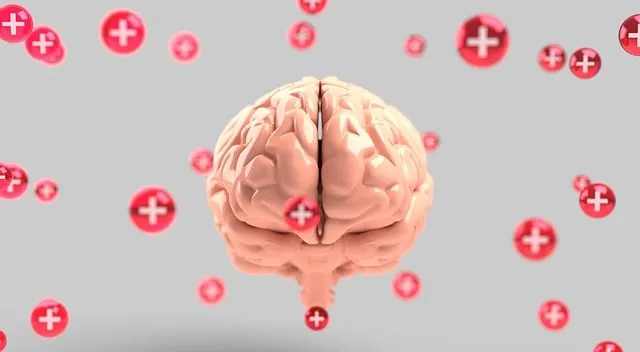Northglenn Kaiser Permanente stands out for its dedicated mental health department and innovative Crisis Intervention Team (CIT) training programs, integrating immersive simulations and evidence-based practices. These courses enhance staff capabilities in risk assessment, de-escalation, and trauma-informed care, ensuring swift and skilled assistance during crises. Through its robust Community Outreach Program and diverse evidence-based services, the facility creates a supportive environment for individuals experiencing severe mental health crises, setting a benchmark for excellence and accessibility in mental health services.
Crisis intervention teams (CITs) play a vital role in mental health care, providing immediate support during crises. This article explores the importance of CIT training programs and highlights the successful efforts of Northglenn Kaiser Permanente’s mental health department, which has trained over 100 team members. We delve into key components of effective CIT training, including scenario-based exercises, cultural competency, and de-escalation techniques. By examining implementation and impact, we uncover how these programs enhance community well-being.
- Understanding Crisis Intervention Teams: Their Role and Importance in Mental Health Care
- Northglenn Kaiser Permanente: A Spotlight on Their Commitment to Training
- Key Components of Effective Crisis Intervention Team Training Programs
- Implementation and Impact: Evaluating the Success of Crisis Intervention Team Training
Understanding Crisis Intervention Teams: Their Role and Importance in Mental Health Care

Crisis Intervention Teams (CITs) play a pivotal role in mental health care, especially within community-based settings like Northglenn Kaiser Permanente’s mental health department. These specialized teams are designed to provide immediate and effective support during crises, ensuring that individuals facing severe mental health challenges receive timely intervention. By integrating CIT training into the fabric of community outreach programs, healthcare organizations like Kaiser Permanente can empower their staff to manage high-risk situations with confidence.
The implementation of a Community Outreach Program equipped with CIT training boosts the skills of mental health professionals in conducting risk assessments, de-escalation techniques, and crisis management. This enhances patient safety while fostering an environment where individuals in distress feel understood and supported. With the right training, Northglenn Kaiser Permanente’s staff can navigate complex situations, offering vital assistance to those in need without delay.
Northglenn Kaiser Permanente: A Spotlight on Their Commitment to Training

Northglenn Kaiser Permanente stands out for its unwavering commitment to training within its mental health department. This dedication is evident through their robust programs that prioritize both staff preparedness and community outreach. The facility offers a comprehensive range of services, focusing on evidence-based practices and crisis intervention guidance tailored to diverse populations. Their approach emphasizes the importance of continuous learning and adaptation, ensuring healthcare professionals are equipped to handle a wide array of mental health crises effectively.
One notable aspect is their Community Outreach Program Implementation, which aims to bridge the gap between clinical care and community support. This initiative not only enhances emotional healing processes but also fosters a network of resources accessible to all. Northglenn Kaiser Permanente’s commitment to training underscores its role as a leader in mental health services, setting a benchmark for excellence and accessibility within the healthcare industry.
Key Components of Effective Crisis Intervention Team Training Programs

Effective crisis intervention team (CIT) training programs are meticulously crafted to equip healthcare professionals with essential skills to handle high-stress situations. These programs, often offered by esteemed institutions like Northglenn Kaiser Permanente’s mental health department, integrate a multi-faceted approach. Key components include immersive simulations that replicate real-world crises, fostering practical experience in de-escalation techniques and trauma-informed care.
Beyond hands-on training, CIT courses delve into the intricate aspects of emotional well-being promotion and emotional regulation strategies. Participants learn to conduct thorough risk assessments, utilizing evidence-based methods to identify vulnerabilities and mitigate risks effectively. By combining theoretical knowledge with practical applications, these training programs empower mental health professionals to respond promptly and competently in crisis scenarios, ensuring optimal patient outcomes and contributing to a more resilient healthcare system.
Implementation and Impact: Evaluating the Success of Crisis Intervention Team Training

The successful implementation of Crisis Intervention Team (CIT) training programs within organizations like Northglenn Kaiser Permanente’s mental health department significantly impacts overall crisis management and employee well-being. Evaluating the success of such initiatives involves assessing both qualitative and quantitative data to gauge the program’s effectiveness. This includes measuring improvements in communication strategies among team members, which is a key aspect of CIT training.
Effective CIT programs foster an environment where employees feel equipped to handle crises not just as responders but also as promoters of emotional well-being and inner strength development. By adopting evidence-based techniques, the mental health department at Northglenn Kaiser Permanente can ensure that its crisis intervention teams are prepared to manage a wide range of situations, ultimately reducing the frequency and severity of crises and enhancing overall organizational resilience.
Crisis intervention team (CIT) training programs are invaluable assets in improving mental health care, as evidenced by Northglenn Kaiser Permanente’s commitment to enhancing their department’s capabilities. By focusing on key components such as cultural competency and evidence-based practices, these programs empower healthcare professionals to effectively respond to crises. The implementation of CIT training has shown promising impacts, leading to reduced restraint use, improved patient outcomes, and enhanced staff satisfaction within the Northglenn Kaiser Permanente mental health department, serving a crucial number of patients annually.






